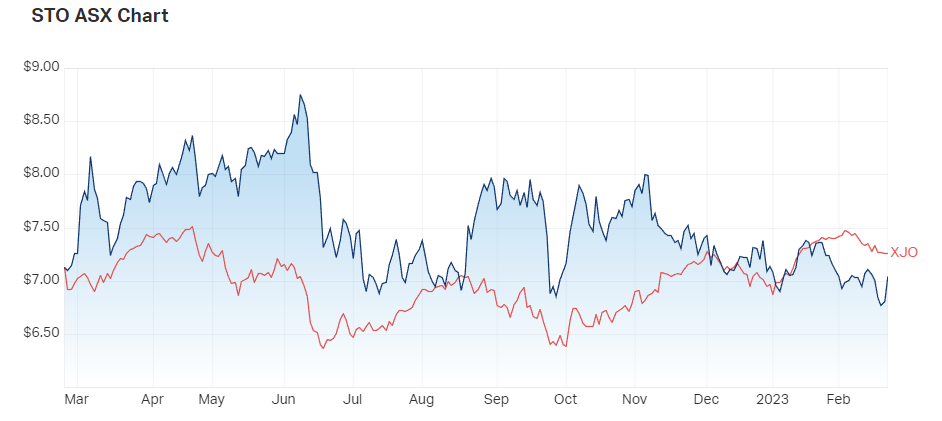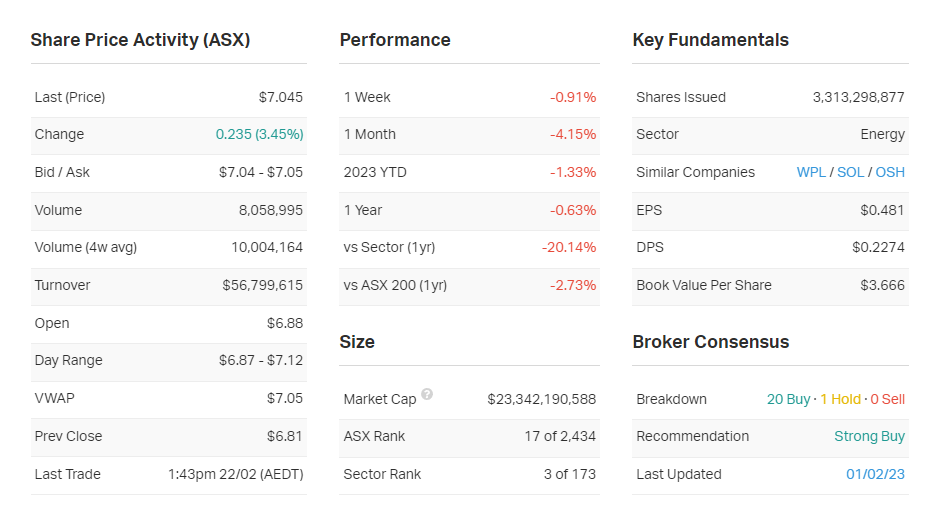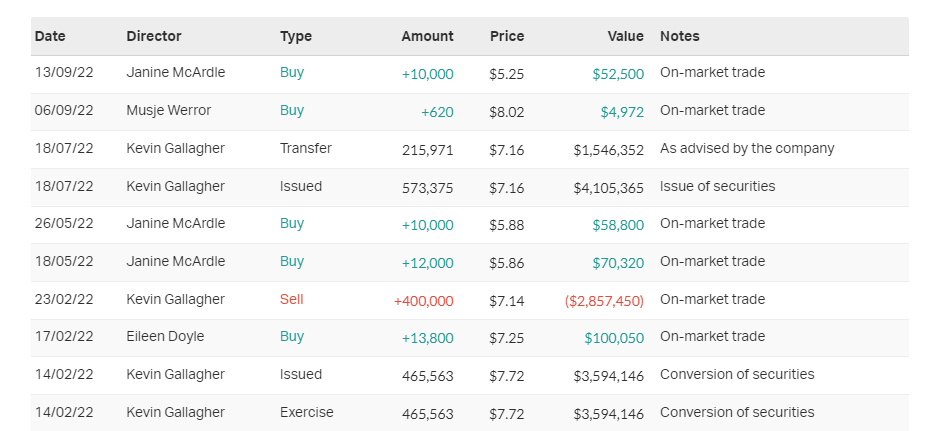Higher prices, cost and execution discipline fuel strong result for Santos
That has been the experience of Santos (ASX: STO), as the oil and gas play delivered its full-year profit numbers today.
The numbers were solid, but not scintillating, across the board, yet the market responded positively by driving the share price around 4% higher.
Bruce Williams from Elston Asset Management put the reaction down to a couple of things. As well as the numbers being solid, he points to a renewed focus on capital management, and more discipline than in previous cycles from the board;
“They’ve got plenty of optionality around what they can do, but they are very focused on the both the financial and risk metrics. A great example of this is developments that tie into existing infrastructure which generate high returns for a limited amount of risk”
In this wire, I dive deeper into the results with Williams as he unpacks his bullish thesis on the company, highlights the opportunity moving forward, and works through the key risks for STO.

Note: The interview took place Wednesday, 22 February 2023.

Santos (ASX: STO) Full-year Key Results
- Core profit excluding one-off items $3.6bn (up 160%)
- EBITDAX $5.65bn against expectations of $5.84bn
- Revenue $7.79bn against expectations of $7.92bn
- Free cash flow $3.64bn well ahead of expectations of $2.46bn
- Reported NPAT $2.11bn as compared to last year's $658m
- Final dividend $0.151/share (up almost 80%) (unfranked); record 28-Feb, payable 29-Mar
2023 Guidance
- Production (mmboe) 89-96, Sales volumes (mmboe) 90-100
- CapEx $1.2bn in sustaining capex (including restoration) and $1.8bn for major projects
Key company data for STO

Santos recently placed in the top 10 for credibility (10), leadership depth (5), and operational management (S), according to MarketMeter. For more information on MarketMeter, please click here.
What were the key takeaways from this result?
They were obviously beneficiaries of price.
It was a very strong result, much like other commodity-based businesses we’ve seen through the season. Their leverage to price is unbelievable, i.e. the change in profitability, the free-cash-flow generation and the impact on the balance sheet.
What was the market’s reaction to this result? In your view, was it an overreaction, an under-reaction, or appropriate?
The stock was up 3% at the time the interview was conducted.
It's probably the right reaction.
It had been trading reasonably soft into the result and the result was mixed, depending on which metric you look at. On an EBITDAX basis it was slightly behind and that looks to be a result of production rolling off in WA - they are looking to backfill that over the next couple of years
A big change was that Santos is looking at the capital management side of things. They've changed to 40% of free cash flow, either through divvies or capital returns, buybacks, capital management measures. So the divvy this time around was higher than what was expected. And they also announced an extension of their buyback programme, which is probably a pretty good use of the money considering the share price has been reasonably soft into the result.
Were there any major surprises in this result that you think investors should beware of?
Not really.
As mentioned previously, the leverage of these companies to strong prices is enormous. How we look at Santos is that since the merger with Oil Search, they do have a lot of options, and this isn't just Santos. It actually applies to a lot of commodity-based businesses. They are in a period of strong pricing.
Traditionally, they have wasted a lot of that benefit through ill-timed acquisitions, etc.
Santos is very similar to the others in that they are being more circumspect in terms of looking to develop projects that tie into existing infrastructure. They're being cautious. They've got plenty of optionality around what they can do, but they are being selective with what they are doing. So they're not wasting this opportunity.
In terms of surprises, guidance for FY23 was unchanged but they did note that production costs are expected to be slightly lower than what they were in the current year, per barrel of oil equivalent. That's probably a function of good cost control, but it's a little bit of a surprise considering the environment we're in.
Would you buy, hold or sell STO on the back of these results?
Rating: BUY
Santos is a current holding in the Elston Australian Large Companies Fund.
It's a buy for us.
We actually sold Beach Petroleum for Santos because they had similar estimated returns, but in Santos' instance, they could generate that return with lower risk in our view.
Offshore demand for gas will continue to be strong and Santos is across multiple basins, so it's not just east coast gas, but it's also LNG and on the west coast. Santos is also developing the Alaska fields that they inherited through Oil Search. So, they're quite diversified in terms of their exposure.
What’s your outlook on STO and its sector over the year ahead? Are there any risks to this company and its sector that investors should be aware of?
Probably one concern for us, which is really a concern for the gas industry overall, is Narrabri is a major project for Santos, and it's taken forever to get approvals. And Santos is not really willing to move forward with that project until there is more certainty.
Also the Barossa project off the north coast. That project has had to deal with uncertainty after an initial ruling to allow Santos access, was overturned. They were already drilling there on the assumption that it would go ahead. All of this ties back to how successful Santos, or any other producer for that matter, is going to be in getting new projects up in a timely manner, at a reasonable cost, in order to maintain supply whilst the energy transition occurs.
From 1-5, where 1 is cheap and 5 is expensive, how much value are you seeing in the market right now? Are you excited or are you cautious on the market in general?
Rating: 3
It really comes down to the individual security.
Coming into this reporting season, we had beefed up our cash in anticipation of being able to deploy it either during or post-reporting season. The main reason for that was that we didn't expect it to be a poor reporting season by any stretch of the imagination, rather, we thought that even though there are cost pressures, valuations with the January bounce had run in excess of what the overall market overall was worth. We also we thought expectations around forward earnings were probably a little bit high.
We are certainly not negative on the economy and we're certainly not negative on the market at current levels.
We just thought it got a bit in front of itself based around forward earnings and growth expectations.
10 most recent director transactions

Catch all of our February 2023 Reporting Season coverage
The Livewire Team is working with our contributors to provide coverage of a selection of stocks this reporting season. You can access all of our reporting season content by clicking here.
4 topics
1 stock mentioned
1 fund mentioned
1 contributor mentioned


